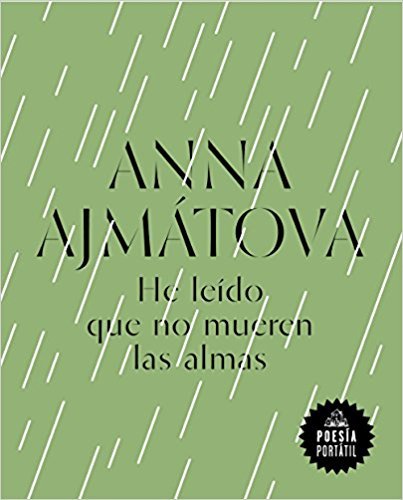
La obra de Anna Ajmátova (1889-1966), prohibida durante muchos años en Rusia, es uno de los principales testimonios literarios de la turbulenta historia del país. En 1934 su primer marido, el también poeta Gumilev, fue acusado de actividades contrarrevolucionarias y murió fusilado. Muchos de sus amigos poetas fueron enviados a los gulags estalinianos y Ajmátova vio cómo la mayoría de sus seres queridos morían, eran condenados o enviados al exilio. Entre ellos, su único hijo. Tras años en el centro de la diana del terror estalinista, Lev fue encarcelado en 1938 acusado de terrorismo. Durante diecisiete meses, Ajmátova hizo cola todas las mañanas ante la cárcel de Leningrado para saber si seguía con vida. De esta experiencia nacería uno de sus poemarios más hermosos: Réquiem, recogido en este libro y publicado en 1963, el mismo año en que se le concedió el Premio Internacional de Literatura. Esta selección, en la versión del Premio Nacional de Traducción José Luís Reina Palazón, también incluye otros poemas en los que Ajmátova desnuda el espíritu ruso mientras canta al desamor, al paso del tiempo y al dolor de ver la propia patria sometida al terror más feroz.
Author

also known as: Анна Ахматова Personal themes characterize lyrical beauty of noted work of Russian poet Anna Akhmatova, pseudonym of Anna Andreevna Gorenko; the Soviet government banned her books between 1946 and 1958. People credit this modernist of the most acclaimed writers in the canon. Her writing ranges from short lyrics to universalized, ingeniously structured cycles, such as Requiem (1935-40), her tragic masterpiece about the Stalinist terror. Her work addresses a variety of themes including time and memory, the fate of creative women, and the difficulties of living and writing in the shadow of Stalinism. She has been widely translated into many languages, and is one of the best-known Russian poets of 20th century. In 1910, she married the poet, Nikolay Gumilyov, who very soon left her for lion hunting in Africa, the battlefields of World War I, and the society of Parisian grisettes. Her husband did not take her poems seriously, and was shocked when Alexander Blok declared to him that he preferred her poems to his. Their son, Lev, born in 1912, was to become a famous Neo-Eurasianist historian. Nikolay Gumilyov was executed in 1921 for activities considered anti-Soviet; Akhmatova then married a prominent Assyriologist Vladimir Shilejko, and then an art scholar, Nikolay Punin, who died in the Stalinist Gulag camps. After that, she spurned several proposals from the married poet, Boris Pasternak. After 1922, Akhmatova was condemned as a bourgeois element, and from 1925 to 1940, her poetry was banned from publication. She earned her living by translating Leopardi and publishing essays, including some brilliant essays on Pushkin, in scholarly periodicals. All of her friends either emigrated or were repressed. Her son spent his youth in Stalinist gulags, and she even resorted to publishing several poems in praise of Stalin to secure his release. Their relations remained strained, however. Akhmatova died at the age of 76 in St. Peterburg. She was interred at Komarovo Cemetery. There is a museum devoted to Akhmatova at the apartment where she lived with Nikolai Punin at the garden wing of the Fountain House (more properly known as the Sheremetev Palace) on the Fontanka Embankment, where Akhmatova lived from the mid 1920s until 1952.